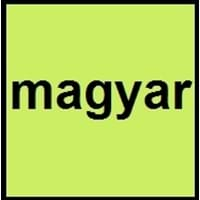Irish vs Hungarian
Countries
European Union, Ireland
European Union, Hungary, Serbia, Vojvodina, Serbia
National Language
Ireland
Austria, Gambia, Hungary, Romania, Serbia, Slovakia, Slovenia, Ukraine
Second Language
Ireland
United States of America
Speaking Continents
Europe
Africa, Europe
Minority Language
United Kingdom
Austria, Croatia, Romania, Slovakia, Slovenia, Ukraine
Regulated By
Foras na Gaeilge
known, Research Institute for Linguistics of the Hungarian Academy of Sciences (Magyar Tudományos Akadémia Nyelvtudományi Intézete)
Interesting Facts
- In Irish language, there are no exact words for "yes" or "no".
- There are different set of numbers for counting humans and another set for counting non-humans in Irish Language.
- Hungarian language has only preserved most of its ancient elements.
- 'Magyar' is the Hungarian name for the language, the 'Magyar' is also used as an English word to refer to Hungarian people.
Similar To
Not Available
Mansi and Khanty Languages
Derived From
Not Available
East and South Slavic Languages
Alphabets in
Irish-Alphabets.jpg#200
Hungarian-alphabets.jpg#200
Writing Direction
Left-To-Right, Horizontal
Left-To-Right, Horizontal
Thank You
Go raibh maith agat
köszönöm
How Are You?
Conas atá tú ?
Hogy vagy?
Good Night
Oíche mhaith
Jó Éjszakát
Good Evening
Tráthnóna maith duit
jó Estét
Good Afternoon
Tráthnóna maith duit
Jó Napot Kívánok
Good Morning
Dia dhuit ar maidin
jó Reggelt
Please
le do thoil
Kérlek
I Love You
Is breá liom thú
Szeretlek
Excuse Me
Gabh mo leithscéal
elnézést
Dialect 1
Connacht Irish
Csángó
Where They Speak
Connacht
Bacău County, Rumania
Dialect 2
Munster Irish
Oberwart
Where They Speak
Munster
Austria
Dialect 3
Ulster Irish
Székely
Where They Speak
Ulster
Székely Land
Speaking Population
Not Available
Native Name
Gaeilge (na hÉireann) / An Ghaeilge
magyar / magyar nyelv
Alternative Names
Erse, Gaeilge, Gaelic Irish
Magyar
French Name
irlandais moyen
hongrois
German Name
Mittelirisch
Ungarisch
Pronunciation
[ˈɡeːlʲɟə]
[ˈmɒɟɒr]
Ethnicity
Irish people
Hungarians
Language Family
Indo-European Family
Uralic Family
Subgroup
Celtic
Finno-Ugric
Early Forms
Primitive Irish, Old Irish, Middle Irish, Classical Irish, Irish
Old Hungarian
Standard Forms
An Caighdeán Oifigiúil
Modern Hungarian
Language Position
Not Available
Signed Forms
Irish Sign Language
Not Available
Scope
Individual
Individual
ISO 639 6
Not Available
Not Available
Glottocode
iris1253
hung1274
Language Type
Living
Living
Language Linguistic Typology
Verb-Subject-Object
Subject-Object-Verb
Language Morphological Typology
Fusional
Agglutinative, Synthetic
Irish and Hungarian Language History
Comparison of Irish vs Hungarian language history gives us differences between origin of Irish and Hungarian language. History of Irish language states that this language originated in c. 750 whereas history of Hungarian language states that this language originated in 1192 AD. Family of the language also forms a part of history of that language. More on language families of these languages can be found out on Irish and Hungarian Language History.
Irish and Hungarian Greetings
People around the world use different languages to interact with each other. Even if we cannot communicate fluently in any language, it will always be beneficial to know about some of the common greetings or phrases from that language. This is where Irish and Hungarian greetings helps you to understand basic phrases in Irish and Hungarian language. Irish word for "Hello" is Dia dhuit or Hungarian word for "Thank You" is köszönöm. Find more of such common Irish Greetings and Hungarian Greetings. These greetings will help you to be more confident when conversing with natives that speak these languages.
Irish vs Hungarian Difficulty
The Irish vs Hungarian difficulty level basically depends on the number of Irish Alphabets and Hungarian Alphabets. Also the number of vowels and consonants in the language plays an important role in deciding the difficulty level of that language. The important points to be considered when we compare Irish and Hungarian are the origin, speaking countries, language family, different greetings, speaking population of these languages. Want to know in Irish and Hungarian, which language is harder to learn? Time required to learn Irish is 36 weeks while to learn Hungarian time required is 44 weeks.





